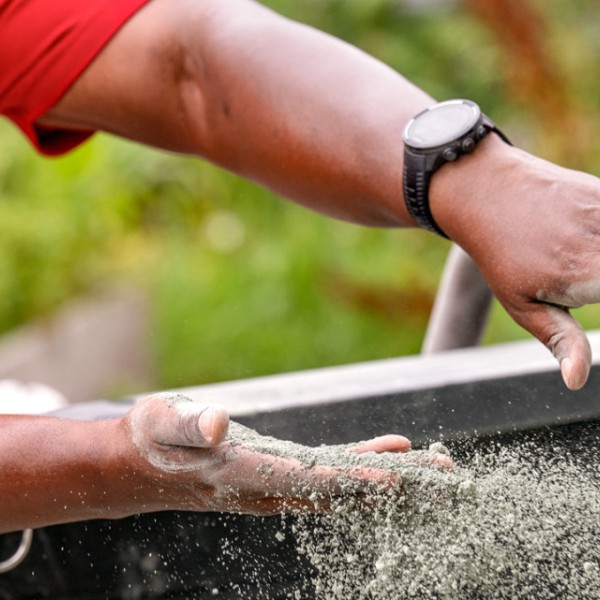That concept was the basis for a new course offered for the first time in fall 2023: Using the Power of Food to Confront Climate Change. The one-credit Learning Where You Live course will be offered again this semester.
“I think food has power,” said Michael Hoffmann, professor emeritus of entomology in the College of Agriculture and Life Sciences, who originated the course alongside Danielle Eiseman, lecturer in the Brooks School of Public Policy. “It’s part of our cultures, part of our family histories, it’s emotional, it’s personal. So why not tap into the power of food as a way to convey the story of climate change?”
Human-caused climate change is harming agricultural production across the globe, including threatening production of vanilla in Madagascar, cocoa in Western Africa and almonds in California, as Hoffmann and Eiseman detailed in their 2021 book “Our Changing Menu,” which serves as the course textbook.
“We import $5 billion in agricultural products from Peru and Chile every year. They rely for a lot of their irrigation on meltwaters from an ice cap that is melting and is projected to disappear in 20 years,” Hoffmann said. “When you ask young people how they feel about climate change, they respond with words like ‘hopeless,’ ‘overwhelmed’ and ‘uncertain.’ In the course we acknowledge those fears, but we also talk about strategies and steps we can take to address the problem and feel hopeful again.”
For Laure-Emmanuelle Dalle ’24, an Africana studies major who uses the pronouns they/them, the course was eye-opening and has caused them to change some of their food choices.
“I consider myself an environmentalist and somebody who really cares about the Earth, and I had never really considered the role that food plays in climate change. After taking the class, it really plays a very large role,” they said.
Dalle’s favorite foods are vanilla-based sweets and “anything with beef in it.” But since taking the class and learning more about how overconsumption of red meat is contributing to climate change – and climate change is reducing vanilla production – they’ve chosen to eat less beef in an effort to protect both their favorite foods.
“It really changed my perspective,” they said.
Nicola Kery took the course while at Cornell for one semester as an exchange student from the University of Sydney, Australia. Though she’s long been interested in climate change, her family has not been, she said. After the first day of the course, she called her Greek-descended parents to explain how some of their favorite foods were endangered by climate change.
“When I told them about the olive trees not producing as many olives and vineyards also struggling to produce wines, they really began to show interest, and asked, ‘What we can do at home to make a difference?’” Kery said.
Eve Iulo ’26, a communication major, said that food can be a unifying way to make discussions of climate change less polarizing and more palatable.
“We can wield food as a potent instrument for instigating change,” she said. “Traditional media often presents issues as critical as climate change in manners that feel distant or overwhelming to consumers – laden with esoteric jargon or jarring headlines. Shifting this narrative to revolve around something as universally resonant and dynamic as food holds the promise of inspiring a broader audience to take meaningful action.”










